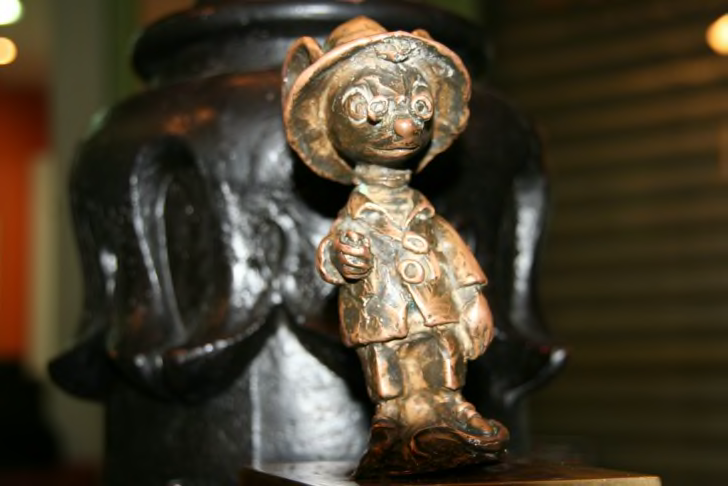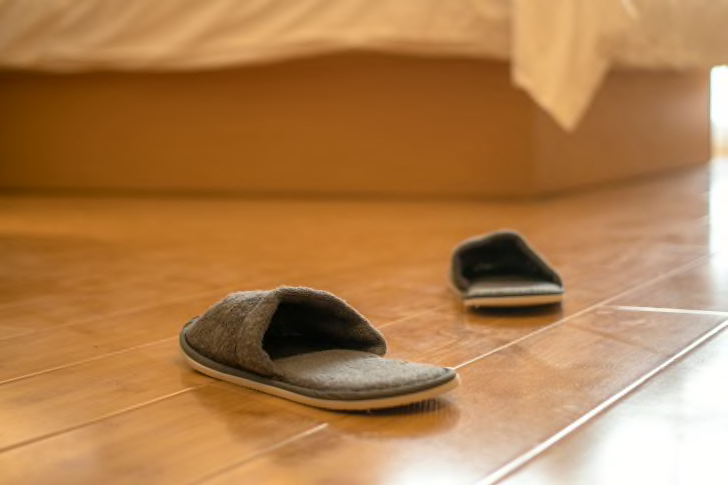
 HOME
HOMEIt’s National Tooth Fairy Day on the 28th February, and whilst most children in the UK will find a shiny penny or 50p piece under their pillow at night, around the world, the tradition alters slightly.
In the UK, the tooth fairy is typically employed in a relatively simple transaction that sounds bizarre when explained to the uninitiated: In order to help ease the trauma of losing baby teeth, kids are paid off for their pearly whites—lose a tooth, put it under your pillow, go to sleep. At some point, a fairy will arrive to exchange the tooth for some cash. In 2017, the going rate was an average of £4.00 per tooth!
Putting a tooth under a pillow sounds soft and sweet, but it also sounds boring. What about tossing those teeth around? In some Asian countries, that’s just what they do. Historically, kids who lose teeth from their lower jaw will throw their teeth onto their roof, while upper jaw teeth go on the floor or even under it (the idea is the new tooth will be pulled towards the old tooth). That’s not all, though, because as the tooth-losing kiddo tosses their teeth, they sometimes yell out a wish that the missing tooth be replaced by the tooth of a mouse. Mice (and other rodents) have teeth that continually grow, which sounds like a wise request when one goes missing.

Asian countries aren’t the only place you’ll find kids throwing their teeth up in the air—in some Middle Eastern countries, kids are encouraged to toss their teeth up toward the sky. It’s possible that the tossed teeth tradition dates all the way back to the 13th century.

Mice aren’t just big business around Spain; the French also abandon their teeth to their very own mouse: “La Bonne Petite Souris.” As is so often the case, the tiny mouse will procure teeth left under pillows, replacing them with either cash or sweets (bad idea, Petite Souris).

Throughout Central Asia, it’s traditional to put the tooth into some fat and feed it to a dog (don’t try this at home). This is done because they want the grown up tooth to be as strong as the dog’s teeth. If there’s no dog? Bury it by a tree so that the new tooth has strong roots.
Back to Blog| Cookie | Duration | Description |
|---|---|---|
| cookielawinfo-checkbox-advertisement | 1 Year | The cookie is set by GDPR cookie consent to record the user consent for the cookies in the category "Advertisement". |
| cookielawinfo-checkbox-analytics | 11 months | This cookie is set by GDPR Cookie Consent plugin. The cookie is used to store the user consent for the cookies in the category "Analytics". |
| cookielawinfo-checkbox-necessary | 11 months | This cookie is set by GDPR Cookie Consent plugin. The cookies is used to store the user consent for the cookies in the category "Necessary". |
| cookielawinfo-checkbox-other | 1 year | Set by the GDPR Cookie Consent plugin, this cookie is used to record the user consent for the cookies in the "Other" category . |
| viewed_cookie_policy | 11 months | The cookie is set by the GDPR Cookie Consent plugin and is used to store whether or not user has consented to the use of cookies. It does not store any personal data. |
| Cookie | Duration | Description |
|---|---|---|
| _ga | 2 Years | This cookie is installed by Google Analytics. The cookie is used to calculate visitor, session, campaign data and keep track of site usage for the site's analytics report. The cookies store information anonymously and assign a randomly generated number to identify unique visitors. |
| _gat_gtag_UA_135273458_1 | 1 Minute | This cookie is set by Google and is used to distinguish users. |
| _gid | 1 Day | This cookie is installed by Google Analytics. The cookie is used to store information of how visitors use a website and helps in creating an analytics report of how the website is doing. The data collected including the number visitors, the source where they have come from, and the pages visted in an anonymous form. |
| vuid | 2 years | Vimeo installs this cookie to collect tracking information by setting a unique ID to embed videos to the website. |
| Cookie | Duration | Description |
|---|---|---|
| _fbp | 3 months | This cookie is set by Facebook to deliver advertisement when they are on Facebook or a digital platform powered by Facebook advertising after visiting this website. |